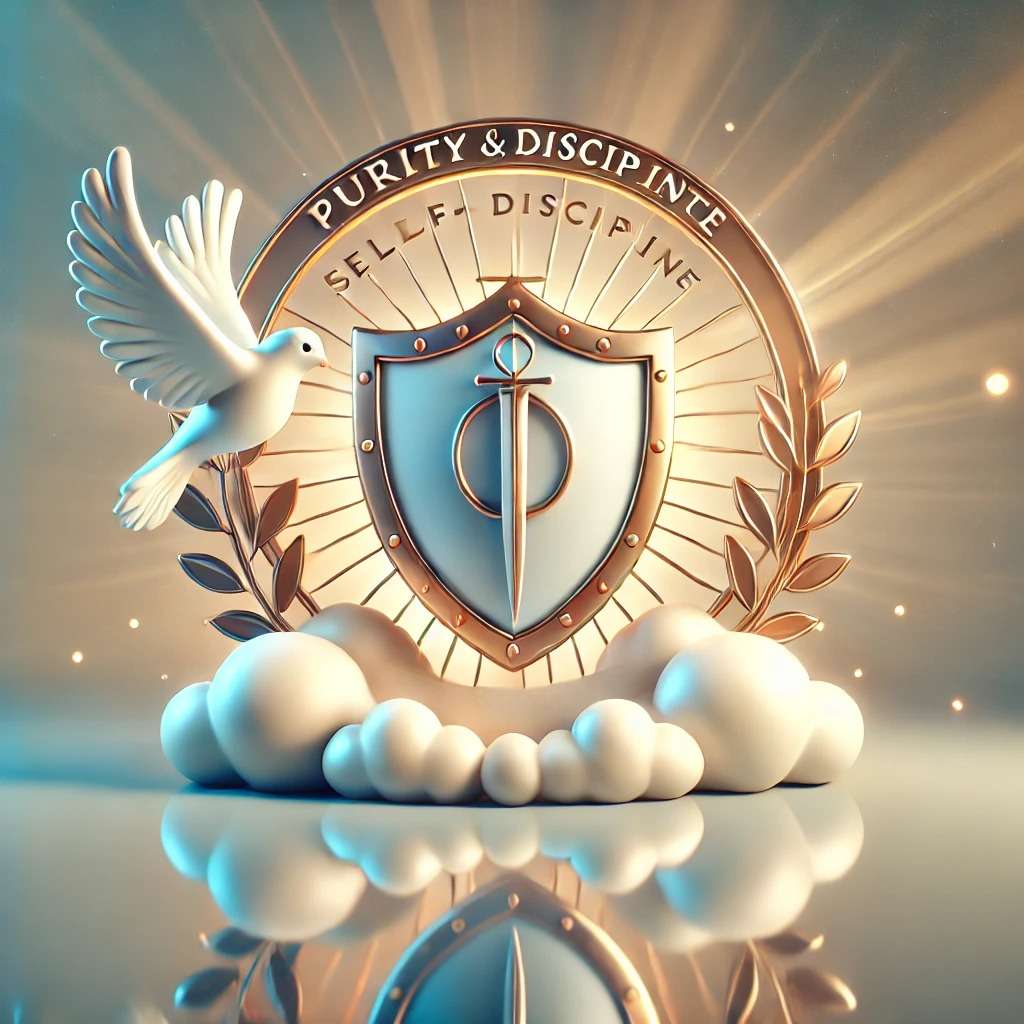

Masturbation is a topic that many Christians find confusing. What does the Bible say about masturbation?
The Bible doesn’t mention it directly, leading to various interpretations. This article explores relevant scriptures, theological views, and practical advice for Christians.
What Does the Bible Say About Masturbation? Exploring Scriptural Silence and Interpretation
The Bible doesn’t directly mention masturbation, but several scriptures offer guidance. For example, 1 Corinthians 6:18-20 (KJV) says, “Flee fornication. Every sin that a man doeth is without the body; but he that committeth fornication sinneth against his own body.”
The Complete Jewish Bible (CJB) translates it as, “Run from sexual immorality! Every other sin a person commits is outside the body, but the fornicator sins against his own body.”
While fornication refers to sex outside marriage, the principle of sexual purity extends to other behaviors, including masturbation. Many interpret this as a call to maintain sexual integrity and avoid impurity.
Matthew 5:28 (KJV) also highlights the importance of controlling lustful thoughts: “But I say unto you, That whosoever looketh on a woman to lust after her hath committed adultery with her already in his heart.” The CJB echoes this sentiment. Lustful thoughts, often linked with masturbation, are discouraged in the Bible.
These scriptures provide a framework for understanding how masturbation fits into a broader biblical context of sexual purity and self-control.
The Intersection of Lust and Self-Gratification: Biblical Perspectives
Lust is often central to the debate about masturbation. In Matthew 5:27-30 (KJV), Jesus talks about adultery and lustful thoughts: “Ye have heard that it was said of them of old time, Thou shalt not commit adultery: But I say unto you, That whosoever looketh on a woman to lust after her hath committed adultery with her already in his heart.”
This suggests that engaging in masturbation, which involves lustful thoughts, could be sinful. The CJB version supports this, emphasizing the dangers of lust.
1 John 2:16 (KJV) warns against the “lust of the flesh”: “For all that is in the world, the lust of the flesh, and the lust of the eyes, and the pride of life, is not of the Father, but is of the world.”
The CJB adds, “because all the things of the world—the desires of the old nature, the desires of the eyes, and the pretensions of life—are not from the Father but from the world.”
These passages stress controlling thoughts and desires, which can lead to sinful behaviors like masturbation.
Purity and Holiness: How Masturbation Fits into Christian Ethics
Christian ethics emphasize purity and holiness. In 1 Thessalonians 4:3-5 (KJV), Paul writes, “For this is the will of God, even your sanctification, that ye should abstain from fornication: That every one of you should know how to possess his vessel in sanctification and honor.”
The CJB translates this as, “God wants you to be holy, that you keep away from sexual immorality, that each of you know how to manage his sexual impulses in a holy and honorable manner.” This means Christians should avoid actions leading to sexual immorality, including masturbation.
Another key verse is 1 Corinthians 6:19-20 (KJV): “What? know ye not that your body is the temple of the Holy Ghost which is in you, which ye have of God, and ye are not your own? For ye are bought with a price: therefore glorify God in your body, and in your spirit, which are God’s.”
The CJB echoes, “Or don’t you know that your body is a temple for the Ruach HaKodesh who lives inside you, whom you received from God? The fact is, you don’t belong to yourselves.”
These verses reinforce that our bodies are sacred and should be treated with respect and purity, suggesting that masturbation may not honor this sanctity.
What Does the Bible Say About Masturbation in the Context of Marriage?
What does the Bible say about masturbation within marriage?
In 1 Corinthians 7:3-5 (KJV), Paul advises married couples: “Let the husband render unto the wife due benevolence: and likewise also the wife unto the husband. The wife hath not power of her own body, but the husband: and likewise also the husband hath not power of his own body, but the wife.”
The CJB translates this as, “The husband should give his wife what she is entitled to in the marriage relationship, and the wife should do the same for her husband. The wife is not in charge of her own body, but her husband is; likewise, the husband is not in charge of his own body, but his wife is.”
These verses highlight sexual unity and mutual satisfaction in marriage. Masturbation, outside this mutual context, could detract from marital intimacy. For example, a couple should discuss their needs openly, ensuring both partners feel valued, rather than resorting to solitary acts.
Hebrews 13:4 (KJV) states, “Marriage is honorable in all, and the bed undefiled: but whoremongers and adulterers God will judge.” The CJB translates this as, “Marriage is honorable in every respect; and, in particular, sex within marriage is pure. But God will indeed punish fornicators and adulterers.”
This suggests that sexual activities, including masturbation, should align with the purity and mutual respect in marriage.
Is Masturbation a Sin? Diverse Theological Views and Biblical Principles
Is masturbation a sin? Theological views vary. Some say masturbation is sinful because it’s self-gratification, not honoring God. 1 Corinthians 10:31 (KJV) says, “Whether therefore ye eat, or drink, or whatsoever ye do, do all to the glory of God.” The CJB states, “Well, whatever you do, whether it’s eating or drinking or anything else, do it all so as to bring glory to God.”
This raises the question of whether masturbation can glorify God. Many conclude it cannot, as it’s centered on self-pleasure.
Others argue masturbation is a natural response and, when not associated with lust or pornography, may not be sinful. They suggest the Bible’s silence implies it’s not a major moral concern. This view emphasizes context and intention, suggesting masturbation should be avoided if it leads to sin.
For example, someone might struggle with masturbation due to stress. Addressing these issues and seeking healthier coping methods aligns better with biblical principles.
What Does the Bible Say About Masturbation and Self-Control?
Self-control is crucial in Christian life. Galatians 5:22-23 (KJV) lists the fruits of the Spirit, including self-control: “But the fruit of the Spirit is love, joy, peace, longsuffering, gentleness, goodness, faith, meekness, temperance: against such there is no law.” The CJB translates “temperance” as “self-control,” highlighting its importance.
1 Corinthians 7:9 (KJV) advises, “But if they cannot contain, let them marry: for it is better to marry than to burn.” The CJB says, “But if they can’t exercise self-control, they should get married; because it’s better to get married than to keep burning with sexual desire.”
These verses suggest self-control is key to avoiding sinful behaviors, including masturbation.
In an age dominated by technology, understanding what does the Bible say about AI can help guide our choices and ensure that our interactions with artificial intelligence remain aligned with biblical principles of self-control and morality.
Masturbation and Guilt: Navigating Personal Struggles and Spiritual Guidance
Many Christians feel guilt over masturbation, often due to beliefs that it contradicts biblical teachings on purity and self-control. James 4:7-10 (KJV) offers guidance: “Submit yourselves therefore to God. Resist the devil, and he will flee from you. Draw nigh to God, and he will draw nigh to you.”
This encourages humility and seeking God’s help in overcoming temptation. A person struggling with masturbation can find support through prayer, scripture, and community.
Teaching Children and Youth: Biblical Conversations About Masturbation
It’s crucial to educate children and youth about sexual purity and self-control. Biblical principles can guide open discussions about masturbation and its moral implications. Proverbs 22:6 (KJV) says, “Train up a child in the way he should go: and when he is old, he will not depart from it.”
Parents and church leaders should foster a supportive environment, helping young believers navigate their sexual development in a spiritually healthy way.
FAQ on what does the Bible say about masturbation
What does the Bible say about touching yourself?
The Bible doesn’t directly address touching oneself. However, it emphasizes purity and self-control. Verses like 1 Corinthians 6:19-20 suggest treating the body as a temple of the Holy Spirit.
What does the Bible say about releasing sperm?
The Bible mentions sperm release in the context of sexual relations and procreation, as seen in Genesis 38:9-10. Wasting sperm outside of these contexts can be seen as not fulfilling God’s purpose.
Is it a sin to waste sperm?
The Bible implies that wasting sperm, as in the story of Onan (Genesis 38:9-10), is sinful because it goes against God’s design for procreation and sexual purity.
Is it a sin to touch your private parts?
The Bible doesn’t explicitly state that touching private parts is a sin. However, it emphasizes maintaining purity and avoiding lustful thoughts and actions.
What should I do if I struggle with masturbation?
Seek guidance through prayer, scripture, and support from your faith community. Practicing self-control and addressing underlying issues can help align your actions with biblical principles.

